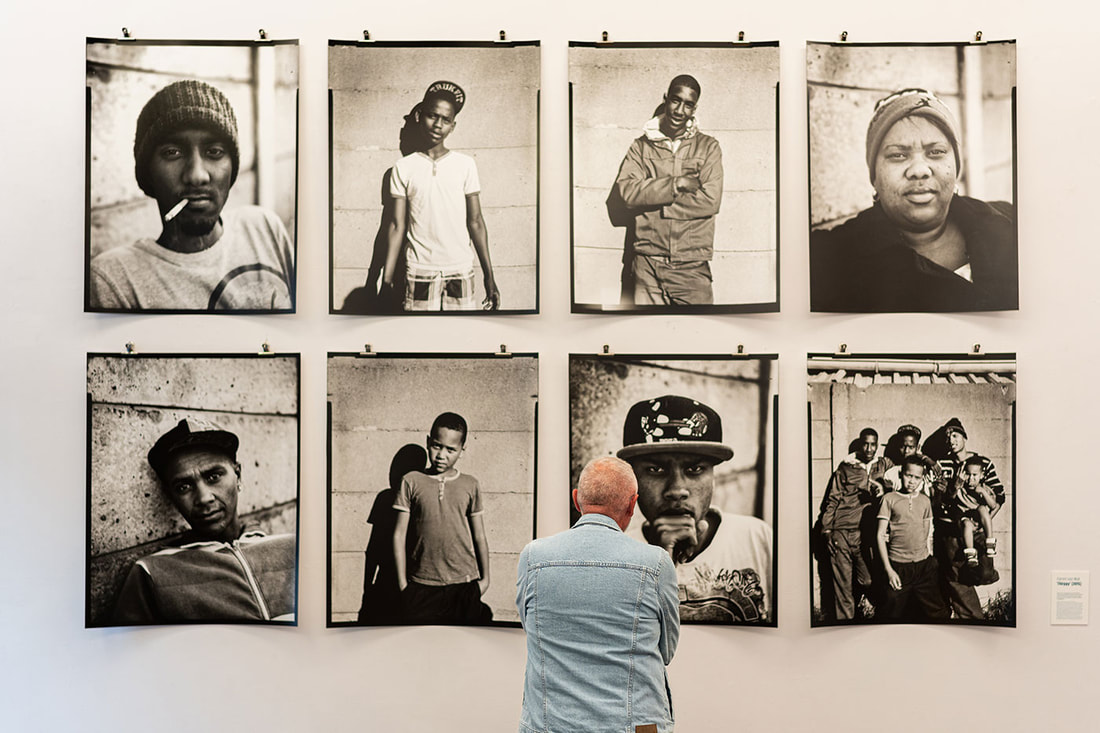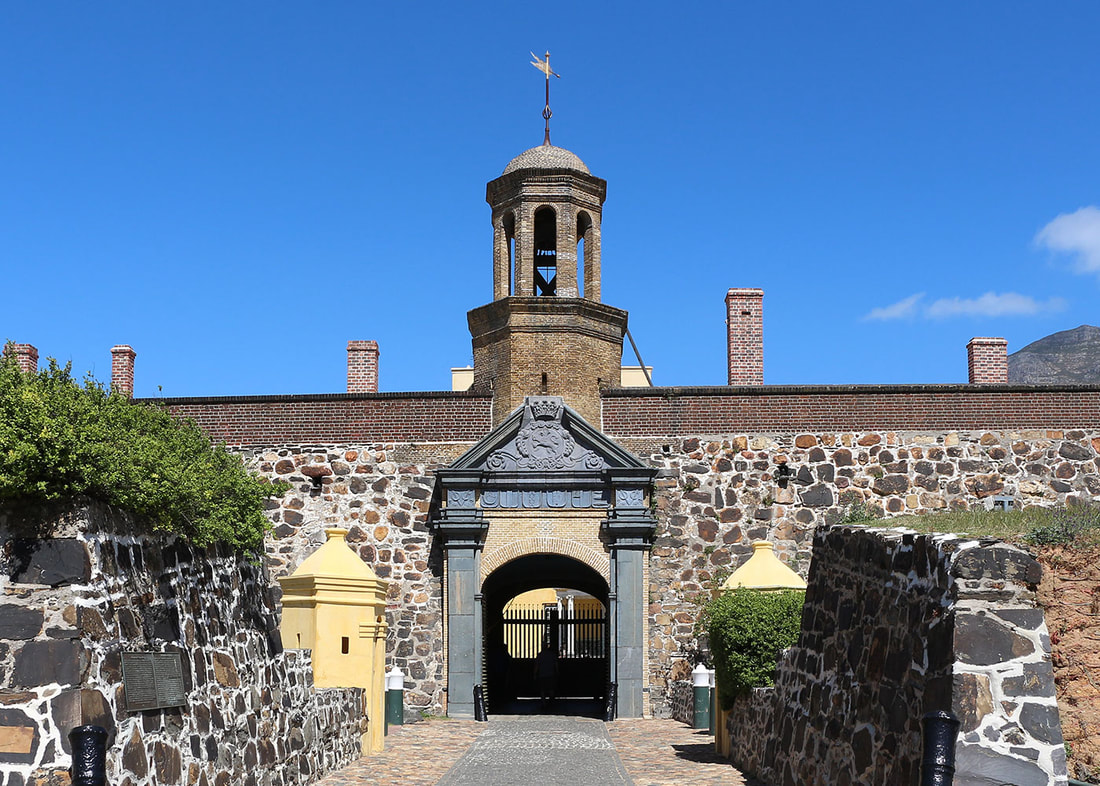South Africans also have the right to Dutch apologies and reparations for slavery
Although the Dutch East India Company (VOC) enslaved more than 60,000 people in the Cape, South Africa was not mentioned in King Willem-Alexander and Prime Minister Rutte's speeches regarding slavery apologies. Mitchell Esajas of The Black Archives calls on the king to offer apologies to South Africa and initiate a process of restoration.
October 20, 2023 by Mitchell Esajas, co-signed by Carine Zaayman and the team of The Black Archives.
The historical view of South Africa is dominated by the history of apartheid and the struggle against it, both in the Netherlands and in South Africa. This is understandable because it was one of the most barbaric systems of oppression of the previous century. The Netherlands had an active anti-apartheid movement in the 1970s and 80s. However, the memory of the anti-apartheid movement overshadows a much more influential period in Dutch history: that of slavery and colonial land theft by the VOC, which laid the foundation for the apartheid system.
Many of us have learned about the "Golden Age" and the VOC but not about slavery. While the VOC enslaved more than 60,000 people at the Cape, this fact is often forgotten in the societal debate on slavery. South Africa wasn't even mentioned in the speeches of Prime Minister Rutte and King Willem-Alexander, even though that period left deep scars in South Africa.
Many of us have learned about the "Golden Age" and the VOC but not about slavery. While the VOC enslaved more than 60,000 people at the Cape, this fact is often forgotten in the societal debate on slavery. South Africa wasn't even mentioned in the speeches of Prime Minister Rutte and King Willem-Alexander, even though that period left deep scars in South Africa.
Therefore, we believe that the people of South Africa also have the right to apologies and restoration.
Today, King Willem-Alexander visits the Slave Lodge Museum. It is now a museum, but between 1655 and 1795, over 5,000 enslaved people lived in that warehouse. The conditions were so deplorable that the death rate was so high that, in those 140 years, more "imported" enslaved people lived there than those born there.
We were taught in school that the Cape was merely a "refreshment station" for VOC ships on their way to "the East." In reality, the Netherlands established a colony in this region that depended on the labor of enslaved people. Before the VOC's conquest, various peoples had developed for thousands of years throughout southern Africa. Patric Tariq Mellet's book, "The Lie of 1652," shows that, especially in the Cape, the KhoiKhoi and San lived with their own economic, spiritual, and social structures. Between 1600 and 1652, independent KhoiKhoi farmers and traders had to deal with Europeans who increasingly used Table Bay on the Cape Peninsula as a stopover on their journeys east. The VOC decided to establish a permanent post there in 1652 to gain control over this lucrative location. The trade with the KhoiKhoi turned into land theft and violent suppression under the leadership of VOC commander Jan van Riebeeck. The "trading post" grew into a colony where Dutch administrators were in charge.
We were taught in school that the Cape was merely a "refreshment station" for VOC ships on their way to "the East." In reality, the Netherlands established a colony in this region that depended on the labor of enslaved people. Before the VOC's conquest, various peoples had developed for thousands of years throughout southern Africa. Patric Tariq Mellet's book, "The Lie of 1652," shows that, especially in the Cape, the KhoiKhoi and San lived with their own economic, spiritual, and social structures. Between 1600 and 1652, independent KhoiKhoi farmers and traders had to deal with Europeans who increasingly used Table Bay on the Cape Peninsula as a stopover on their journeys east. The VOC decided to establish a permanent post there in 1652 to gain control over this lucrative location. The trade with the KhoiKhoi turned into land theft and violent suppression under the leadership of VOC commander Jan van Riebeeck. The "trading post" grew into a colony where Dutch administrators were in charge.
We want the Netherlands to acknowledge its role.
According to Carine Zaayman from Utrecht, a descendant of one of Van Riebeeck's key interpreters and negotiators, the enslaved Krotoa, the Netherlands has neglected its interest in the Cape. During the opening of the exhibition "CAPE x UTRECHT Hidden histories of slavery & its afterlives," she said that the aftermath of that time continues to affect what is today "the most unequal country in the world." "We want the Netherlands to acknowledge its role in the oppressive reality in which the majority of South Africans still live."
Photo by Kaka Lee
Although apartheid was legally abolished in 1994, the structures and barriers that cause racial and economic inequality still exist. Access to education, work, and land is still highly unevenly distributed. In 2017, 72% of the land was owned by white South Africans, who make up only 8% of the population. Descendants of the enslaved in the Cape are struggling with poverty and a structural lack of opportunities and resources to climb the social ladder.
The history of slavery has strongly determined economic and racial inequality
|
Near the Slave Lodge Museum lies the Castle of Good Hope, which is now also a museum about the history of VOC slavery, but in the 17th century, it was a fort to protect Dutch settlers. The museum's director, Calvyn Gilfellan, told the NOS that they also hope for recognition from the Netherlands:
"There seems to be a kind of forgetfulness about this part of Dutch colonial history. The Commemorative Year of the Slavery Past seems to be mainly focused on Suriname and the Caribbean. In South Africa, the group was smaller, but we also want recognition". |
We call on the king and the outgoing Dutch government to ask for forgiveness from South Africa, offer apologies, and initiate a process of restoration and healing.
What that restoration should entail, or what should follow, is a matter that needs to be addressed comprehensively, including discussions about reparations, because the legacy of the slavery past has strongly shaped economic and racial inequality, especially in South Africa.
Writer and poet Diana Ferrus, known for the poem "I've come to take you home," formulated it as follows: "Dutch parliamentarians and the king and queen should come here to express remorse. Only when you are here on the spot can you feel the past. I want something to change within them".
Writer and poet Diana Ferrus, known for the poem "I've come to take you home," formulated it as follows: "Dutch parliamentarians and the king and queen should come here to express remorse. Only when you are here on the spot can you feel the past. I want something to change within them".



